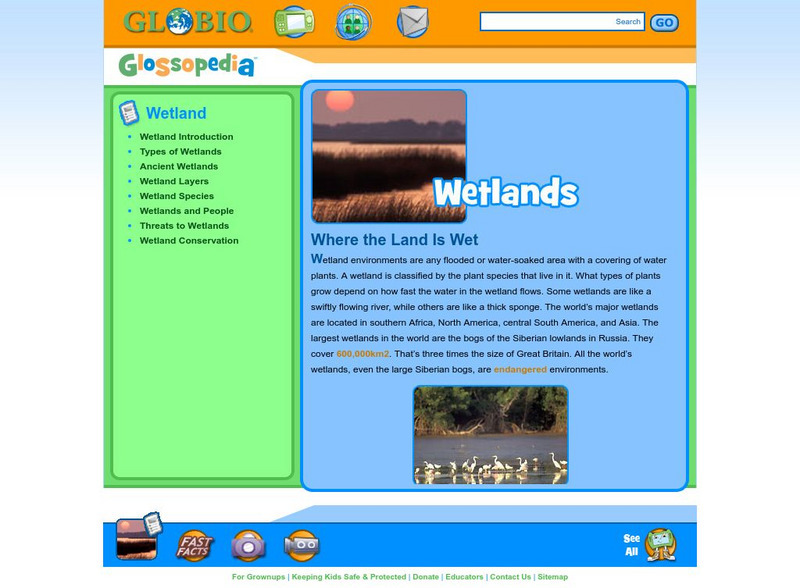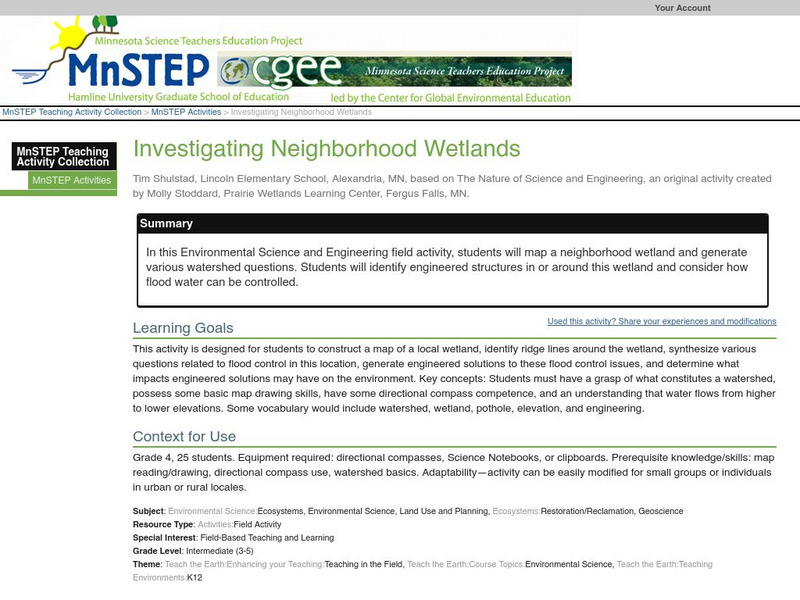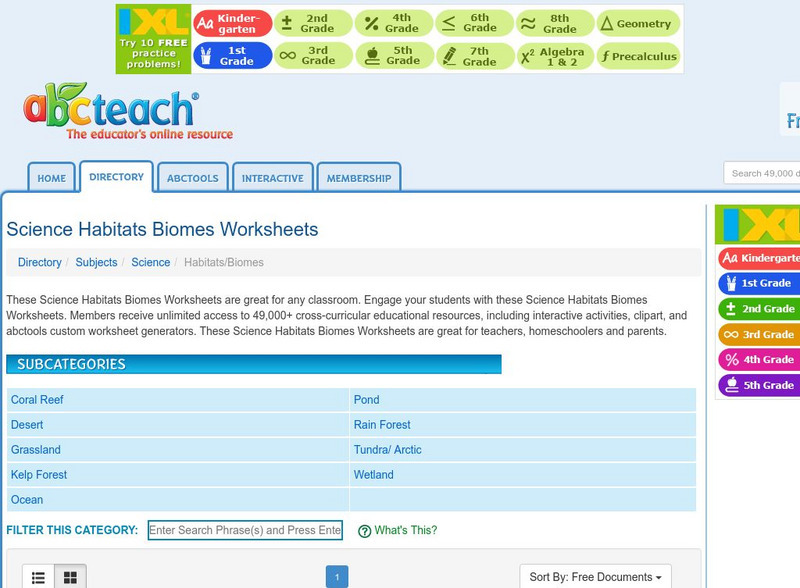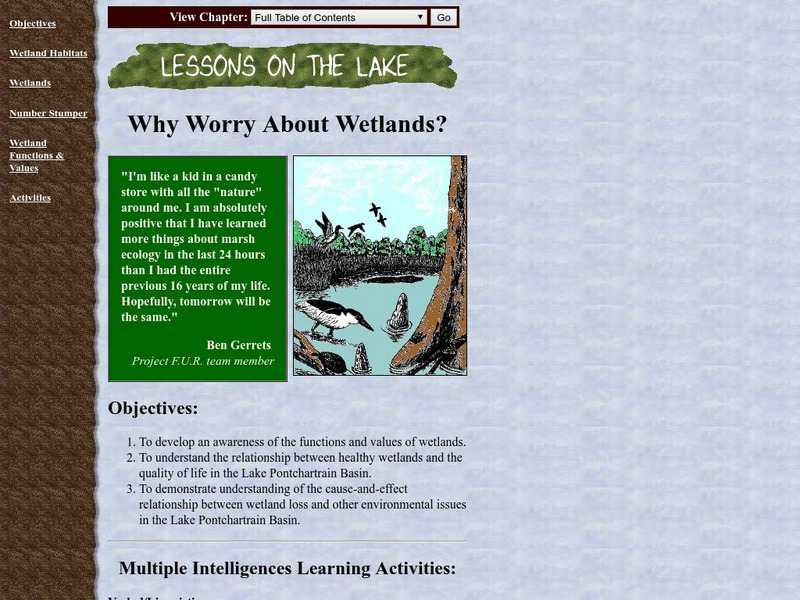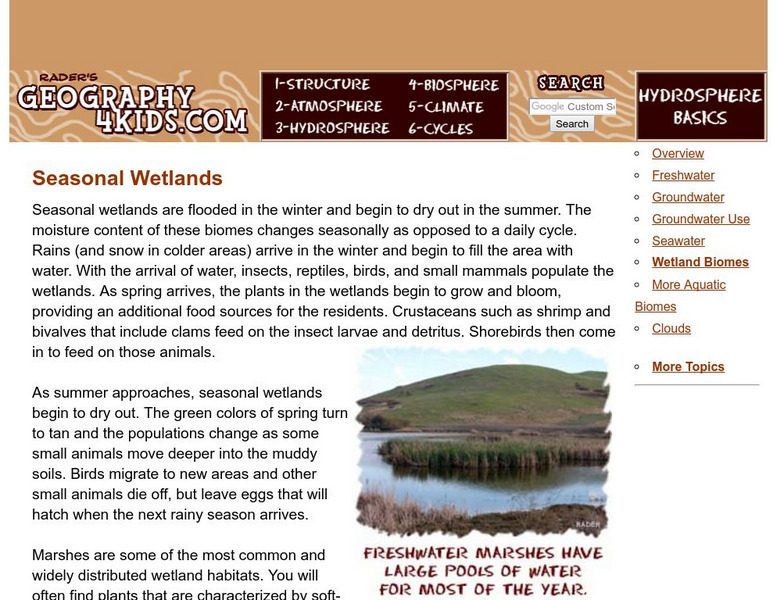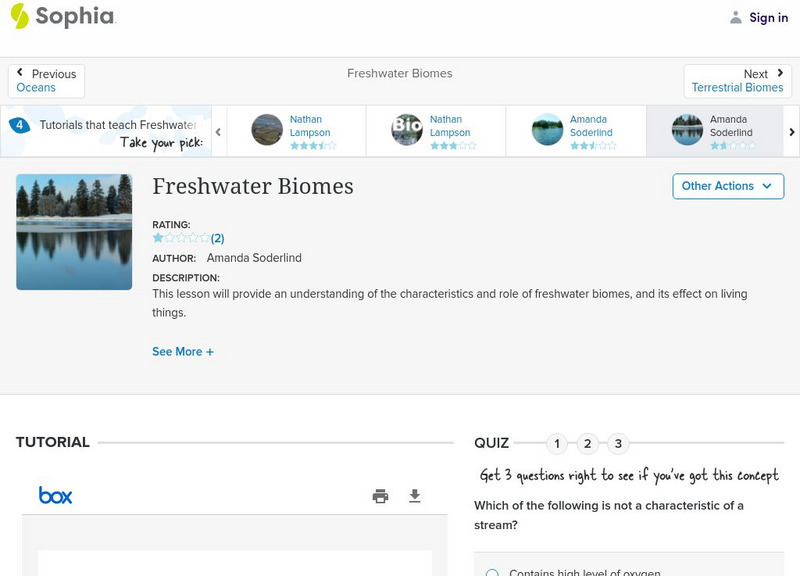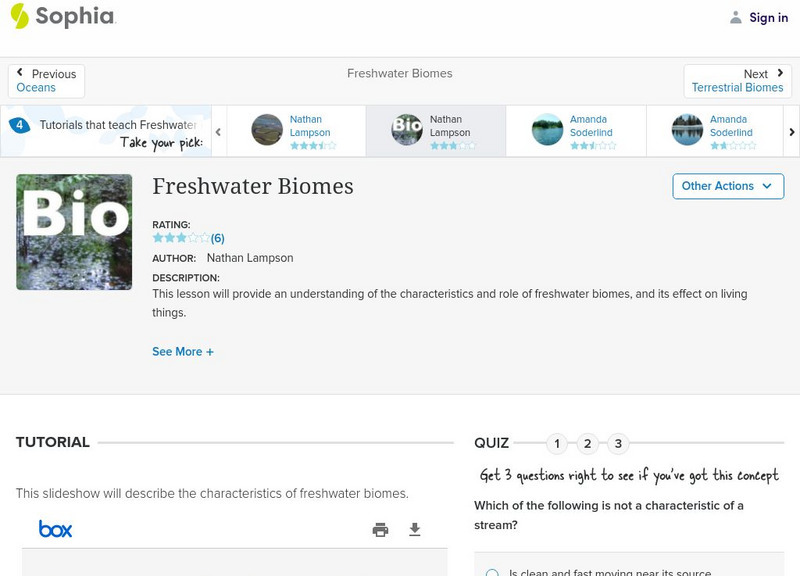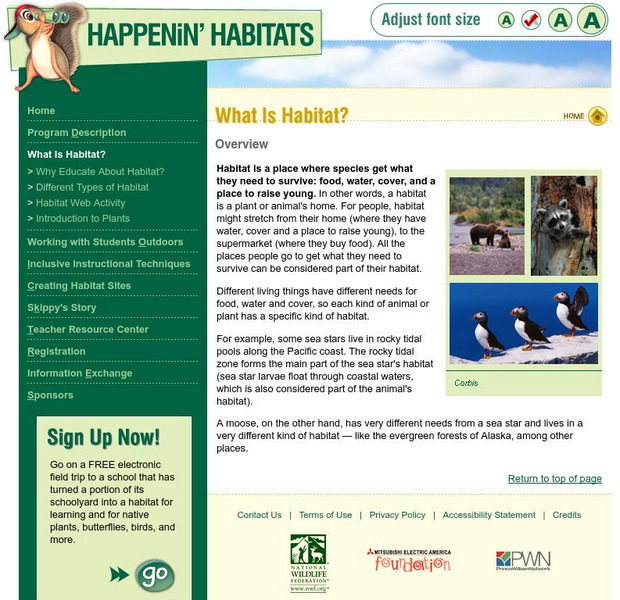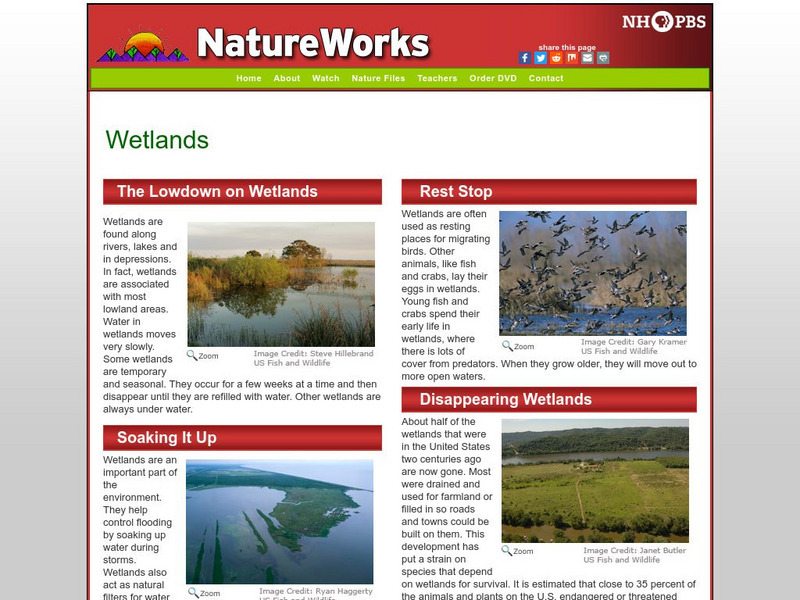Curated OER
Do You Dig Wetland Soil?
Students study the physical differences between wetland and upland soils. They match colors to the different levels of the soil after digging holes. They create soil color charts and chart the texture of the soils.
Curated OER
Aquatic Communities
Students watch a video about aquatic communities. They conduct an experiment that shows how movement of rivers change the landscape. They compare fresh and salt water communities and its wildlife.
Curated OER
Math and Science in a Wetland
Students use scientific methods during field and lab investigations. Students collect specimens and make measurements using the metric system. Students describe biotic and abiotic factors in an estuary and design a model.
American Institute of Biological Sciences
Action Bioscience: Loss of Wetlands: How Bird Communities Are Affected
With increased deforestation, invasive species, and other human actions harming or eliminating the wetland habitats the bird populations are decreasing. Scientists are working diligently to restore the wetland birds' habitats.
Utah Education Network
Uen: Science Vocabulary Game
Fourth graders will play a review memory game with Utah's Grade 4 Science Standard V vocabulary words during this lesson plan. Words associated with living things and classifications of living things are included in this lesson plan.
NOAA
Noaa: Estuaries 101 Curriculum: Bountiful Birds
Learn about different species of birds that make the estuary their home, and why the estuary is an important stopover for others. Includes teacher and student materials for download.
NOAA
Noaa: Estuaries 101 Middle School Curriculum Overview [Pdf]
The Estuaries 101 Middle School Curriculum is a multimedia curriculum focused on the theme "Estuaries & You." It includes a series of online activities for middle school students that highlight our nation's living laboratories, all...
Globio
Glossopedia: Wetland
Wetlands are an integral piece of Earth's ecology. Wetland structure is described as well as their role in the health of plants and animals. Issues concerning destruction and preservation efforts also discussed.
Science Education Resource Center at Carleton College
Serc: Investigating Neighborhood Wetlands
In this Environmental Science and Engineering field activity, young scholars will map a neighborhood wetland and generate various watershed questions. Students will identify engineered structures in or around this wetland and consider...
Missouri Botanical Garden
Missouri Botanical Garden: Fresh Water Wetlands
What are fresh water wetlands? What creatures live in a wetland? Are wetlands in danger? Find out at this informative site. Use the toolbar at the left to navigate through the site.
abcteach
Abcteach: Habitats and Biomes
[Free Registration/Login Required] Find a variety of activities for children to do as they learn to identify varying habitats and biomes. Included are links to an even more extensive list of resources under coral reef, desert, grassland,...
Other
Alberta Riparian Habitat Management Society: Value of Wetlands [Pdf]
The different kinds of wetlands and the many benefits they offer are outlined in this fact sheet. Wetlands preserve the quality of our water and irrigate neighbouring agricultural areas. The importance of preserving these ecosystems is...
Other
Alberta Riparian Habitat Management Society: Lakes and Wetlands [Pdf]
Alberta has different kinds of wetlands, which each offer benefits to the surrounding environments, such as good water quality, increased biodiversity and lake shoreline stabilization, for example. This fact sheet explains their importance.
Other
San Francisco Bay Area Wetlands Restoration Program
Homepage for the massive wetlands restoration project in San Francisco Bay. History, objectives, and benefits of the project are described.
US Geological Survey
Lake Pontchartrain Basin Foundation: Why Worry About Wetland?
Help young scholars understand the functions and values of wetlands through these multiple intelligences learning activities. The site also includes information about the wetland habitats, commercial values, water quality, and erosion...
World Wildlife Fund for Nature
Wwf: Our Earth: Ecoregions: Habitats: Freshwater Wetlands
An introduction and overview of freshwater wetland habitats.
Geography 4 kids
Geography4 kids.com: Seasonal Wetlands
Identify the four types of seasonal wetlands found across the earth. There are fresh water and salt water marshes, bogs, and swamps.
Cornell Lab of Ornithology
Habitat Network: Creating Vernal Pools
Learn the importance of creating vernal pools for habitat diversity.
Sophia Learning
Sophia: Freshwater Biomes
Listen to this podcast discussing the similar characteristics of the freshwater biomes of the world. [0:47]
Sophia Learning
Sophia: Freshwater Biomes
This presentation provides information about the characteristics of several different freshwater ecosystems.
Sophia Learning
Sophia: Freshwater Biomes
This colorful slideshow provides a nice introduction to the freshwater biomes around the world.
Science Education Resource Center at Carleton College
Serc: Exploring Sugarloaf Cove: Geology of Lake Superior's North Shore
Learners gather information about a restored wetland, pebble beach, and lava flows at Sugarloaf Cove on Minnesota's North Shore. Students in the field will make observations using field notebooks and digital media equipment while...
Other
National Wildlife Federation: Happenin' Habitats: What Is Habitat?
Find an overview of what a habitat is exactly. Then, for more information, click in the left hand menu for different types of habitat: forests, grasslands, deserts, wetlands, and arctic tundra. Authors also offer advice on creating a...
PBS
Nh Pbs: Nature Works: Wetlands
Did you know that wetlands are frequently used as resting stops for migrating birds? This is just one of the many interesting facts found within this educational resource. This site features information on the characteristics, types,...


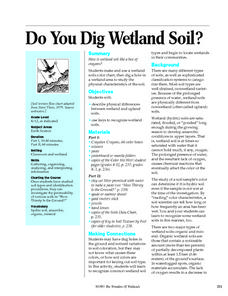





![Noaa: Estuaries 101 Middle School Curriculum Overview [Pdf] Professional Doc Noaa: Estuaries 101 Middle School Curriculum Overview [Pdf] Professional Doc](https://d15y2dacu3jp90.cloudfront.net/images/attachment_defaults/resource/large/FPO-knovation.png)
